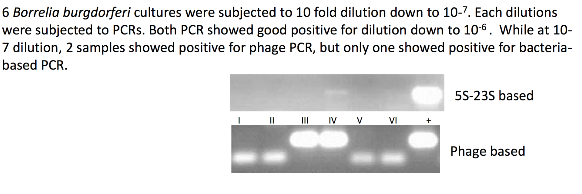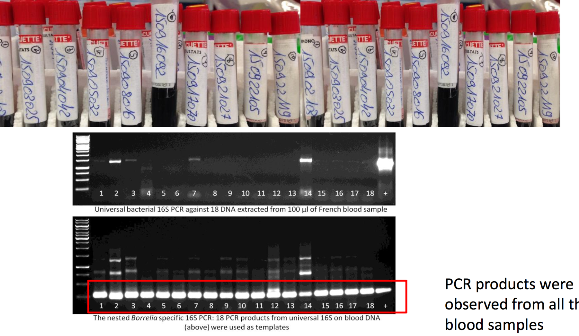
Pertinence of developing highly sensitive test for borrelia spp.
Phelix is working on setting up a phages based test (blood or/and urine) for borrelia spp. as the current available tests return divergent results.
The clinician can not rely on one secure and sensitive test to diagnose Lyme borreliosis; serological tests are very often false negative and the practitioner has to consider first clinical symptoms.
A reliable test would help to treat undiagnosed or badly diagnosed conditions and pastients.
See the two following articles regarding the diagnosis of lyme borreliosis in Autism.
See the complixity of avaialble tests and their pertinence
Diagnosis of Lyme Borreliosis

Phelix has set up a new phage based PCR for borrelia spp. that is more than 50% more sensitive than the current available tests.
Experimentally confirmed that our phage-based PCR showed significantly increased sensitivity compared to the traditional 5S-23S intergenic region based PCR (50% higher compared to other borrelia tests). As seen in the gel picture below, only one positive (IV) using bacteria-based PCR, while two positives can be identified using phage-based PCR
Also developed a Borrelia 16S nested PCR, which involved a bacterial universal PCR followed by a Borrelia PCR. This PCR will pick up all Lyme Borrelia strains.






